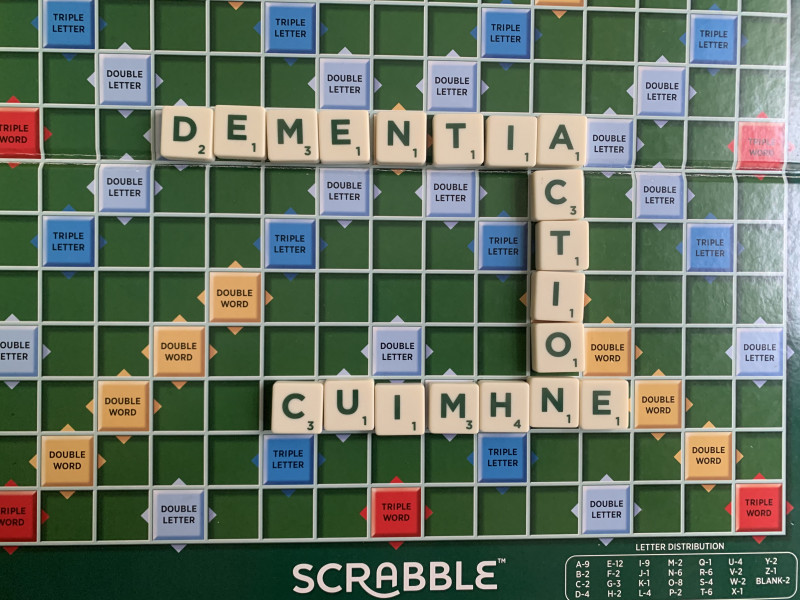Keeping Our Brains Active!
Top Tips for Brain Health
Zibiah Loakthar, our Cuimhne Coordinator writes:
Why can’t you iron a four leaf clover?
Because you should not press your luck!
One of our Cuimhne tips for brain health is to engage in activities that help keep your brain active!
There are so many possibilities here from reading to socialising to learning a new skill.

Some people love word games and word puzzles, crosswords and scrabble. These might be something we do from home on paper or on the computer. We can also do these out and about in pockets of time, for instance sitting in waiting rooms or on the bus.
Puzzles can be done individually but there is lots of scope to make puzzles into social activities, in a room together with others or connecting together virtually online.
Logic puzzles and riddles can easily be built into family and community quizzes. In designing a community or family social quiz for people of different ages, think about ways to make the quiz inclusive. People who may be living with memory loss, for instance early-stage dementia, can still enjoy participating in social quizzes.
Reading out the questions rather than asking people to read a quiz sheet themselves can support people who may experience challenges reading. Choosing a range of questions at different levels can help involve everyone and hold people’s interest.
Word games and puzzles are not everyone’s cup of tea. There are also number puzzles like Sudoko and picture puzzles like jigsaws and spot the difference that can be mixed into family community activities.
There are lots of sources of puzzles. The Alzheimer’s Society for instance offers monthly Brain Workout puzzles delivered to people’s doors:
If you may be designing a puzzle for people living with early-stage dementia, think about using large print in clear contrasting colours and clear type face (Arial is good).
There are designs of jigsaws that may work better for people with early-stage dementia. Think about the size of the pieces, their visibility and their chunkiness to pick up as well as the image choice.
Our Cuimhne team are collecting good riddles and would love to hear yours! Meanwhile we challenge you with these!
What Irish rock is as light as a feather?
Where can you find gold but there is no gold at all?
What has eyes but cannot see?
What is full of holes but can hold water?
Unscramble these anagrams to discover the answers!
CHARMKOS
TRYCOINAID
TOPOAT
PEGONS